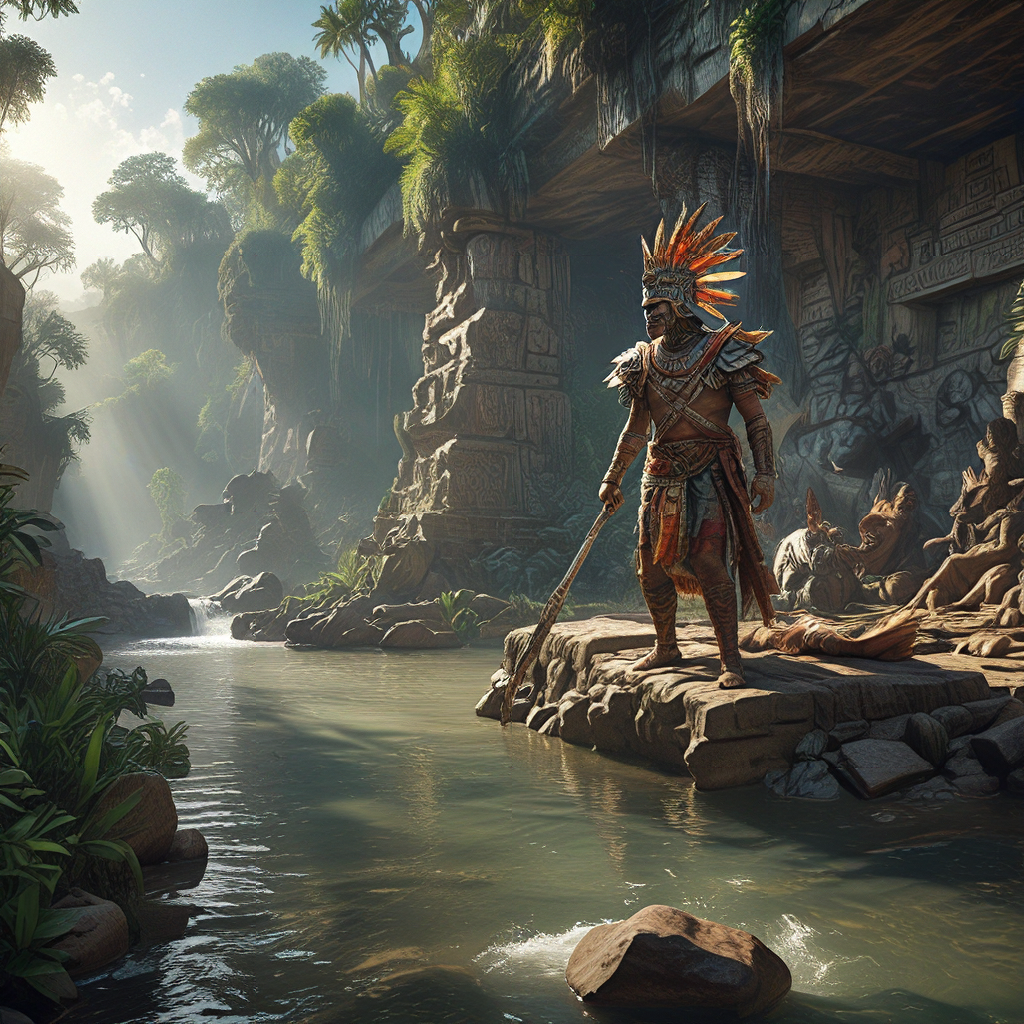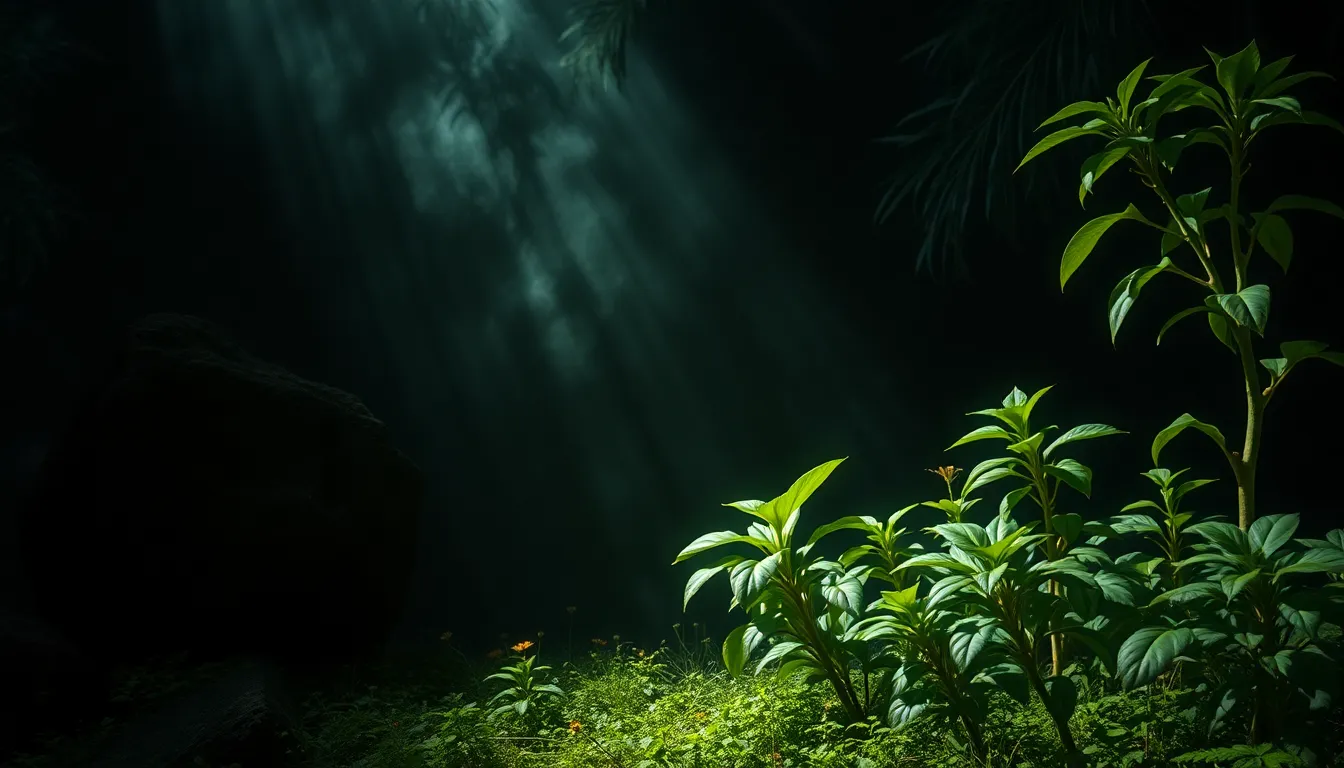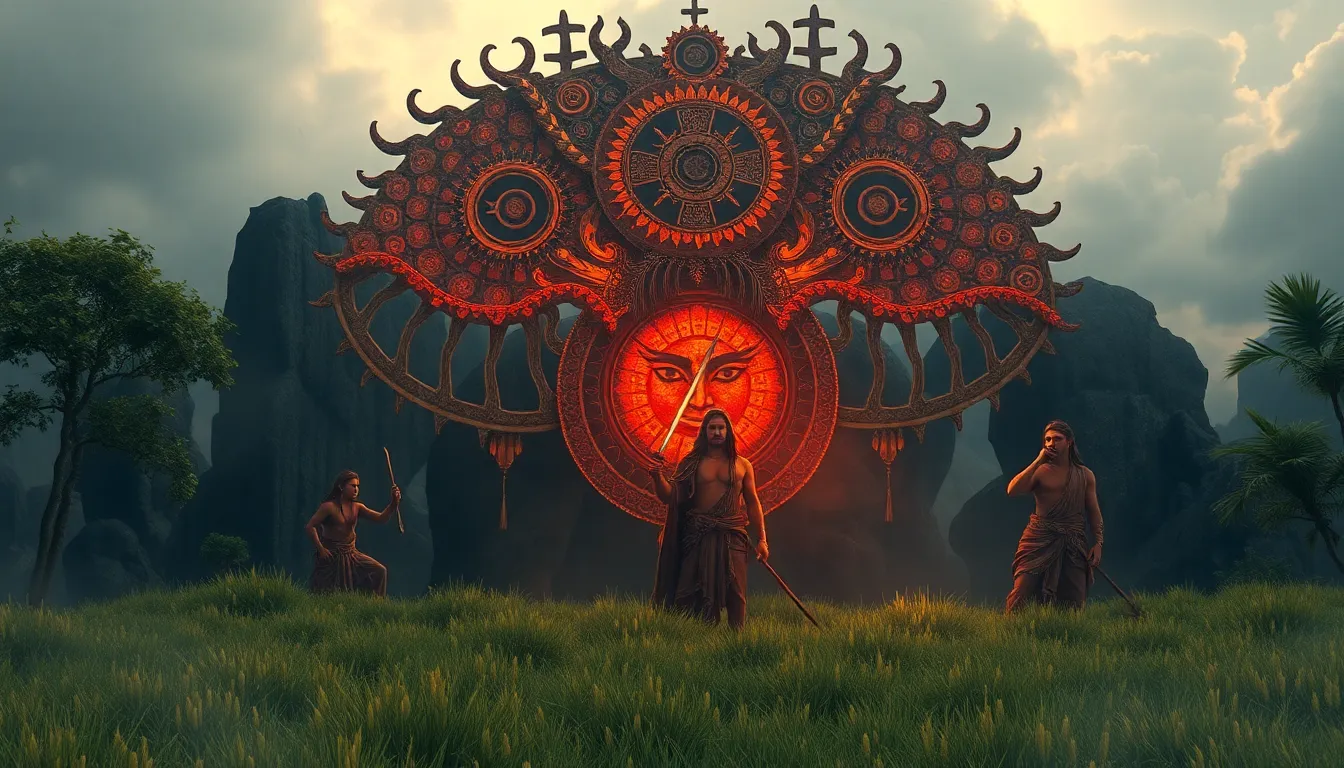Polynesian Mythology: The Battle Between Good and Evil
I. Introduction
Polynesian mythology, a treasure trove of captivating tales and profound beliefs, weaves an intricate tapestry of deities, heroes, and the eternal struggle between good and evil. Rooted in the islands of the Pacific Ocean, this rich mythological tradition has shaped the cultural identity of the Polynesian people for centuries.
II. The Creation and the Divine Realm
- The Creation Story:
Polynesian mythology begins with a profound creation story, describing the emergence of the world from chaos. Gods and goddesses, both benevolent and malevolent, played pivotal roles in shaping the realm of existence. Among them, Tangaroa, the god of the sea, and Papa, the goddess of the earth, hold prominent positions in the creation narrative.
- The Gods and Goddesses:
The Polynesian pantheon consists of a vast array of gods and goddesses, each embodying specific aspects of nature, society, and human experience. From the powerful war god Tu to the serene goddess of peace, Hina, the divine realm of Polynesian mythology holds tremendous significance in shaping the destiny of mankind.
VI. The Underworld and the Afterlife
- The Realm of the Dead:
Polynesian mythology portrays the underworld as a distinct realm, often referred to as Po. It is a place where the spirits of the deceased reside, their fate determined by their actions in the mortal world. The underworld is often depicted as a dark and mysterious abode, where the spirits wander aimlessly or endure various forms of punishment.
- Judgment and Reward:
The Polynesian belief in judgment and reward after death is deeply ingrained in their mythology. It is believed that the gods closely observe the actions of humans and determine their fate in the afterlife. Those who have lived virtuous lives are rewarded with a peaceful existence in the underworld, while those who have committed sins face eternal torment.
VII. Rituals and Beliefs
- Religious Ceremonies:
Prayer, rituals, and religious ceremonies play a vital role in Polynesian mythology. These practices are central to maintaining harmony between the human world and the divine realm. Traditional ceremonies involve offerings, chants, and often include the presence of priests or shamans who act as intermediaries between the gods and humans.
- Taboos and Beliefs:
Polynesian mythology is deeply intertwined with various taboos and beliefs that govern everyday life. These taboos may relate to food, clothing, or certain behaviors believed to offend the gods or attract evil spirits. Adherence to these taboos is considered essential for maintaining balance and well-being within the community.
VIII. The Influence of Nature
- The Role of Animals and Plants:
Nature holds immense significance in Polynesian mythology. Animals and plants are often seen as representations of gods or spirits and are believed to possess supernatural powers. Certain animals, such as sharks or owls, may be revered as guardians or messengers of the divine, while others, like rats or lizards, may be associated with evil or misfortune.
- The Importance of the Environment:
The Polynesian people have a deep reverence for the natural world, as reflected in their mythology. They believe that the environment is sacred and must be respected and protected. Pollution, deforestation, or other forms of environmental degradation are considered offensive to the gods and can lead to divine retribution.
IX. Parallels with Other Mythologies
- Similarities with Other Cultures:
Polynesian mythology shares striking similarities with other mythologies around the world. The concept of a great flood, for example, is a common motif found in many cultures, including the Polynesian creation story. Additionally, the battle between good and evil, the existence of an underworld, and the belief in judgment after death are themes that resonate across diverse mythological traditions.
- Shared Themes and Motifs:
Beyond specific similarities, Polynesian mythology also shares broader themes and motifs with other mythologies. These include the exploration of human nature, the search for meaning in life, and the struggle against adversity. By examining these shared elements, we gain a deeper understanding of the universal human experience and the enduring power of mythology.
X. Conclusion
- The Legacy of Polynesian Mythology:
Polynesian mythology has left an enduring legacy on the cultures of the Pacific Islands. Its stories, beliefs, and rituals continue to shape the identity and worldview of the Polynesian people. Through oral traditions, artistic expressions, and contemporary practices, Polynesian mythology remains a vibrant and integral part of their cultural heritage.
- Its Relevance in Modern Times:
In the modern world, Polynesian mythology continues to resonate with people from all walks of life. Its themes of good versus evil, the importance of nature, and the search for meaning in life remain relevant and inspiring. By studying and appreciating Polynesian mythology, we gain a deeper understanding of our own humanity and the interconnectedness of all things.
FAQ:
- What is the most important story in Polynesian mythology?
The creation story is considered the most important in Polynesian mythology, as it explains the origins of the world and the gods.
- Who are the most powerful gods in Polynesian mythology?
Tangaroa, the god of the sea, and Papa, the goddess of the earth, are among the most powerful and revered gods in Polynesian mythology.
- What is the role of humans in the Polynesian cosmic conflict?
Humans play a crucial role in the cosmic conflict between good and evil, as they have the potential to choose between the two paths and influence the outcome of the battle.
- What are some of the taboos in Polynesian mythology?
Polynesian mythology includes various taboos related to food, clothing, and behavior, such as the prohibition against eating certain meats or wearing certain garments during sacred ceremonies.
- How does Polynesian mythology influence modern culture?
Polynesian mythology continues to influence modern culture through art, literature, music, and other creative expressions, providing insights into the values, beliefs, and traditions of the Polynesian people.



